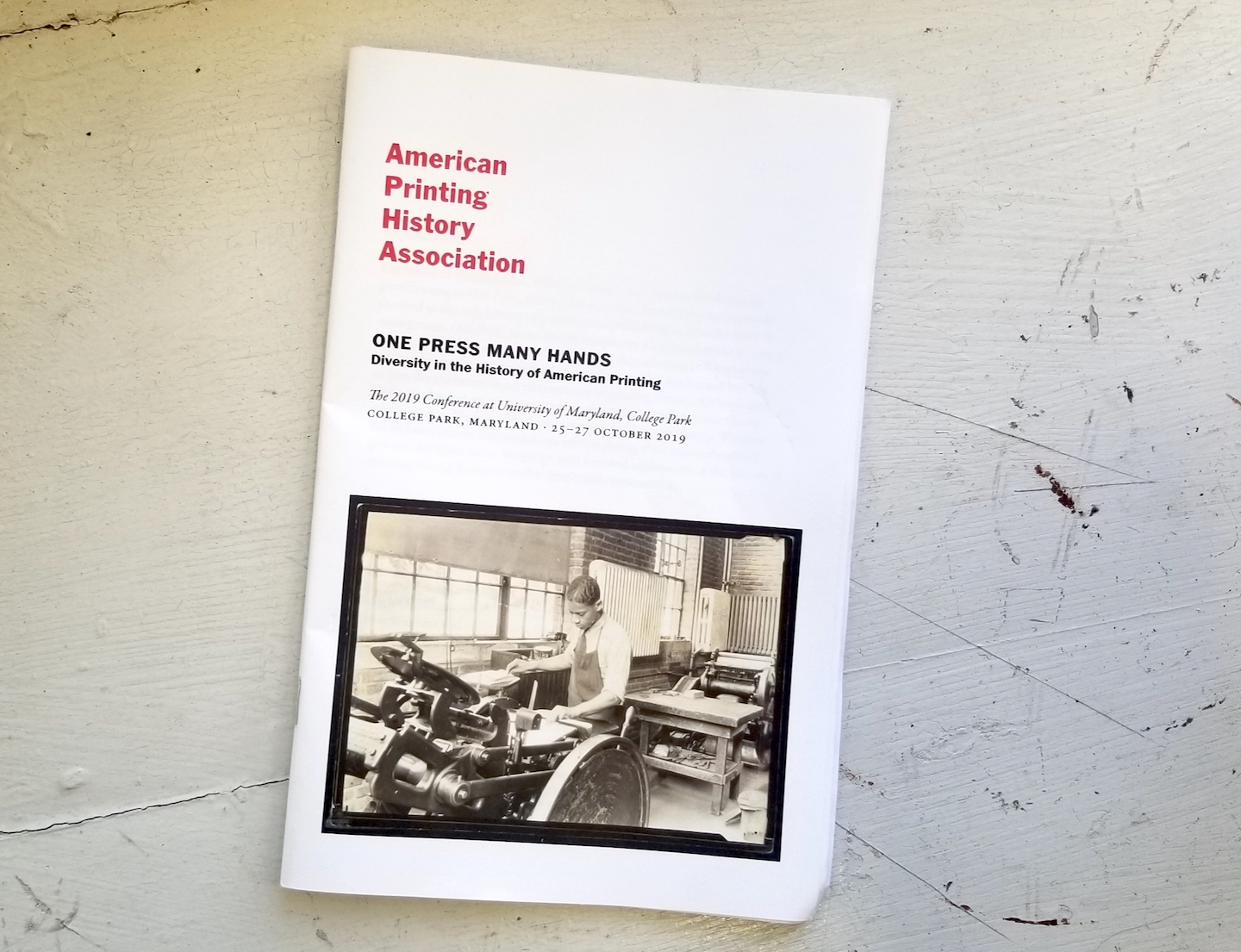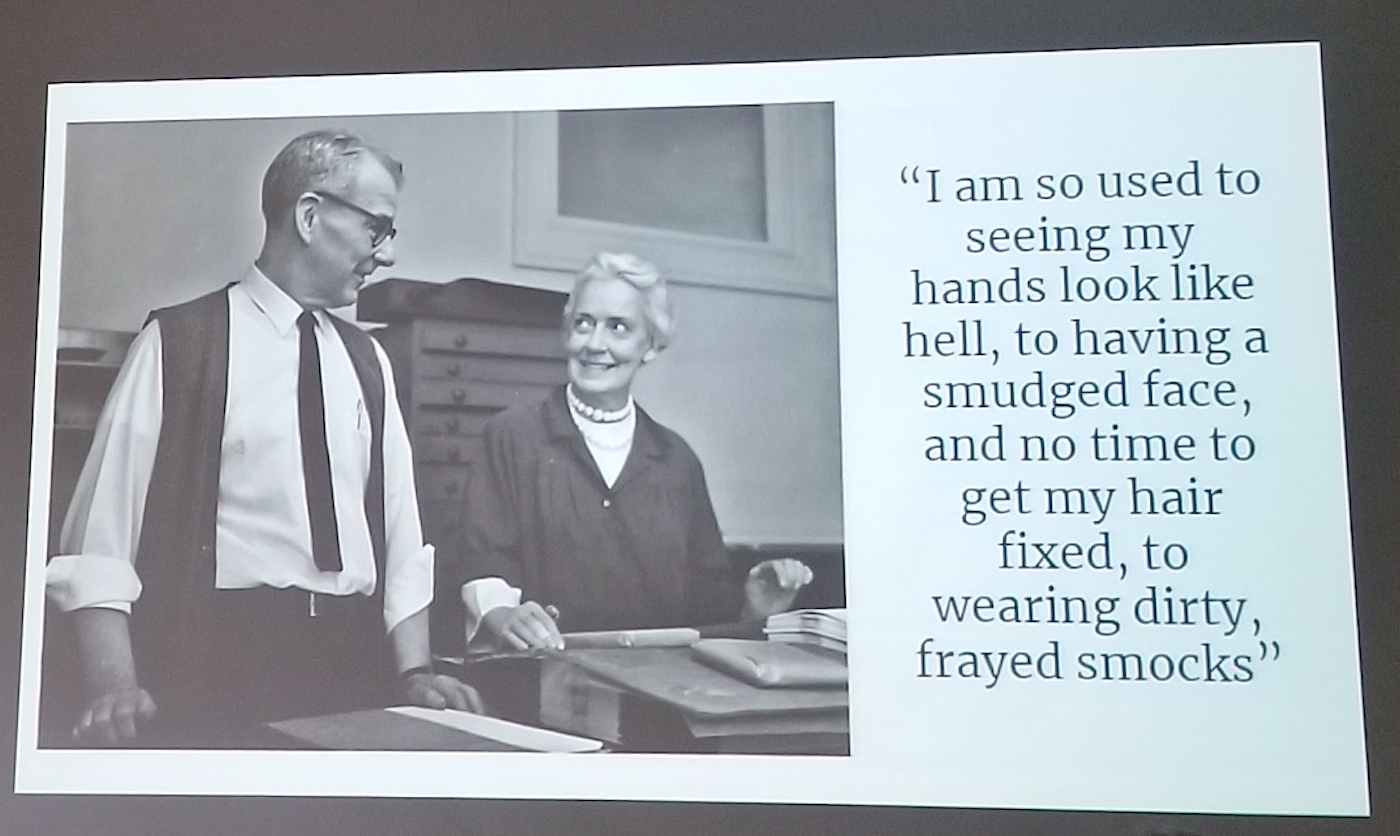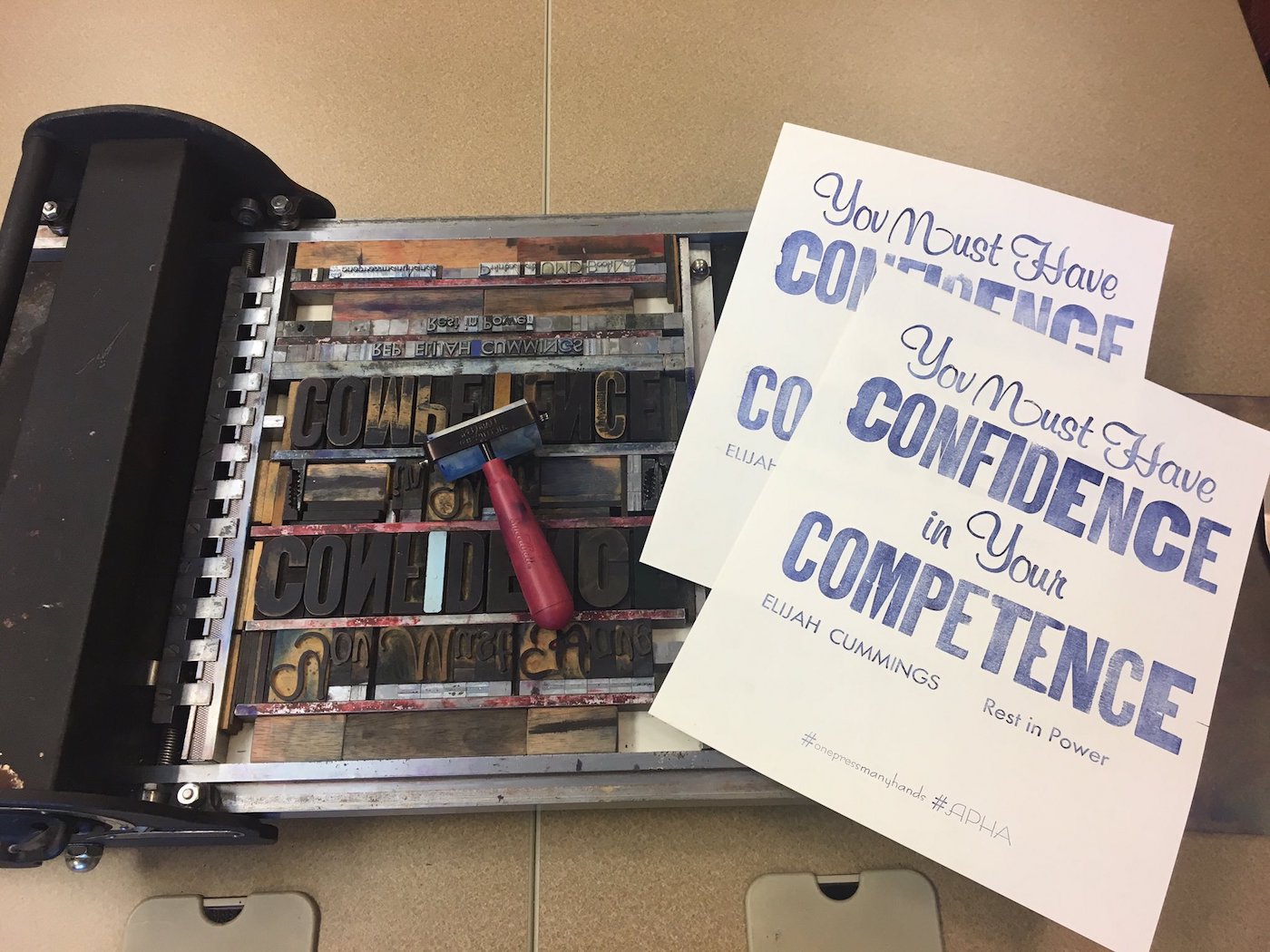Not long ago, I had a revelation:
Printing history nerds are the best nerds.
— Amy Papaelias (@fontnerd) October 8, 2019
The American Printing History Association (APHA) 2019 conference, “One Press Many Hands: Diversity in the History of American Printing”, held at the University of Maryland, College Park last weekend, proved this theory correct. Just to be clear, I love all sorts of nerds, and identify with many nerd cultures: type nerds, tech nerds, type tech nerds, you get where this is going. But there is something about printing history that’s uniquely wonderful. Any of these nerd groups could show up at the APHA conference, enjoy talks related to their own flavor of nerdy, and learn about a tangentially-related topic. The Venn diagram of printing history includes almost all of the nerd circles I love and why I felt so warmly welcomed, despite butchering the pronunciation of APHA during my talk. (For those not in the know, it’s “AHH-FAH” not “A P H A” 🤦♀️ and no one even publicly flogged me for it. AIGA? TDC? It was a reasonable guess!)

It is refreshing to be a newbie at a conference, and it’s possible my enthusiasm is fogged by this doe-eyed perspective. I’ve been to enough type and design and design education conferences now to start feeling like those old guys in The Muppets.
Oh great, another talk about legibility.
Librarians, literary scholars, publishers, letterpress printers, art historians, typesetters, archivists, printmakers, type casters, collectors; these are just some of the people I encountered. With a focus on, “intersections of printing history, the book arts, bibliography, and print culture studies with gender studies, queer theory, ethnic studies, Black studies, Jewish studies, and Latin@ history,” this year’s conference theme aspired to be inclusive and intersectional.
And arguably, it succeeded. Much of the kudos for this effort goes to Dr. Jesse Erickson, Assistant Professor of English and Coordinator of Special Collections at the University of Delaware, who organized a call for proposals and program that sought to challenge exclusively “Eurocentric and Anglo-American printing histories”. Towards the end of Saturday’s program, Dr. Erickson was recognized for his vision and work on the conference with multiple heartfelt rounds of applause. It was clear that APHA not only recognized their limitations but listened to their members and made space for change.
As I was only able to attend the talks and events on Saturday, I will discuss what took place then. While sympathizing with the necessary evil of Concurrent Sessions, I still felt some choice anxiety when deciding what sessions to attend. It might have been easier if APHA had published all of the presentation abstracts and not just the presentation titles, either in the printed program or on the web. That said, it was clear I couldn’t go wrong.
Some of the presentations I thoroughly enjoyed:
– Charmaine A. Nelson, “‘RUN-AWAY, FROM the Printing-Office’: Slave Labour, Slave Literacy, and Eighteenth-Century Print Culture in Quebec”, about Joe, an enslaved pressman of the Quebec Gazette in the late 1700s
– Mallory Haselberger, “[Shaping] up before my eyes and in my own loving hands’: Jane Grabhorn’s Jumbo Press and the Feminist Possibilities of Print”, which I am trying to convince Mallory to publish here on Alphabettes (no pressure!)

Robert and Jane Grabhorn, slide from Haselberger’s presentation. I feel you, Jane.
– Matthew Kirschenbaum, “Kamau Brathwaite’s Printer”, on the renowned poet’s Apple StyleWriter ink jet printer and his use of custom / customized dot matrix-inspired typefaces (some of which are uncredited — Brathwaite himself?)
– Kinohi Nishikawa, “Reading the Fine Print: Frank Marshall Davis at the Black Cat Press”, keynote presentation on the impact of fine press printing and typography on the poetry of Frank Marshall Davis in the mid-1930s
With almost any conference, the best part is the people and what happens in between sessions. After my presentation (co-authored with Jessica Barness who was home sick), I was greeted with several offers for additional help with the research project. One person happened to have hard copies of the publications I presented about and had only seen online in digital form. He asked for my card and would promptly mail them since he wanted them to go to a “good home”, 💁😍! Another person offered to help me reach out to one of the original editors I was having trouble contacting. Have I convinced you yet that printing history nerds are the best nerds? Printing history is truly interdisciplinary; what field isn’t touched by print culture in some way? There is room for everyone at the table.
At the post-keynote reception, attendees had a chance to print a poster at the BookLab at UMD English to take home.

Photo credit: BookLab at UMD English
This is why we go to printing history conferences. Pull up a chair.
